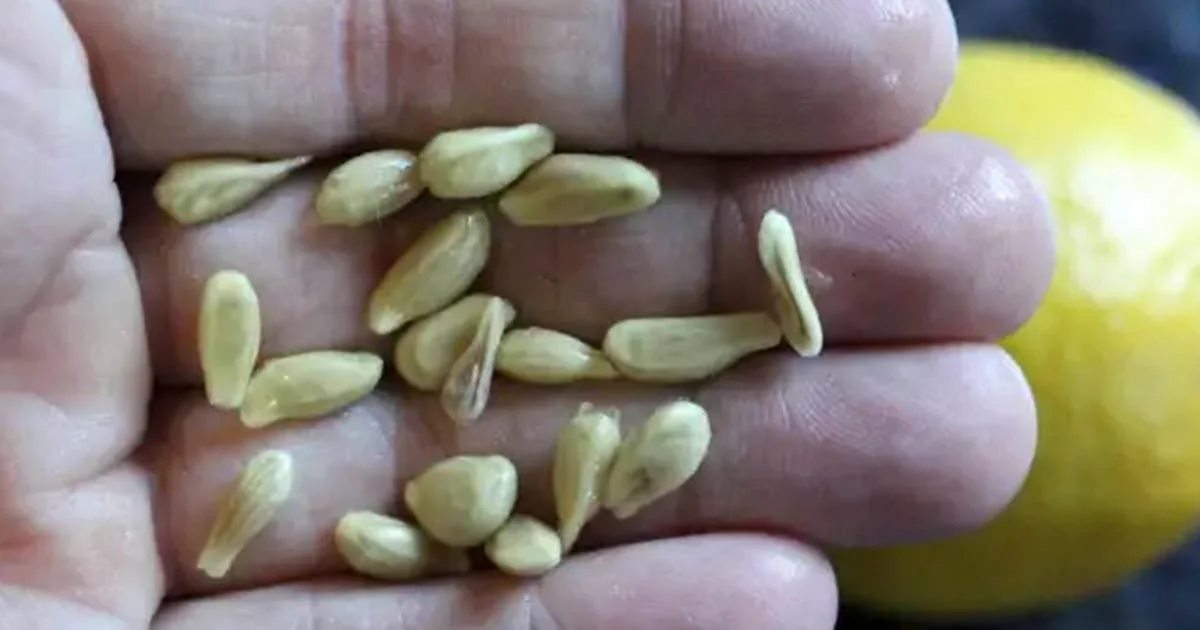“Nearly every day, for cooking, degreasing pans, or washing dishes, at least one lemon is used. Typically, lemon seeds are discarded. However, many are unaware that these seeds can be used in various ways and are incredibly useful in numerous situations.
Lemon Seeds: More Than Just Leftovers
Lemon, a citrus fruit with a thousand uses, can enhance any dish, making it unique and irreplaceable. Even a salad can become delicious with just a splash of lemon juice. When squeezing lemons, seeds often fall out, or we remove them ourselves to avoid the unpleasant experience of biting into small, hard seeds while eating.
Germinating Lemon Seeds in a Glass
Lemon seeds are far from useless as you might think; they can actually be repurposed, both in the garden and at home. One of the most useful and practical methods is to germinate them. With little effort, you can grow a beautiful plant. It’s not difficult; just a few minutes and a little effort, and you’re done.
To germinate lemon seeds, first wash them under running water to remove any remnants of the fruit’s flesh. Use room temperature water, not boiling water. Then, dry them slowly and carefully. Place them on a tissue and, using tweezers, try to remove the covering shell of the seed. Since the seed is moist, the shell is soft, making it an easier process than you might think. Just pull at a corner of the skin. Then, put the seed in a yogurt jar with damp cotton wool for germination. Within a week, a small green shoot should appear. Only after roots have formed should it be planted in a pot with soft, permeable soil. Keep it in a warm place, ideally between 18° and 26°C, ensuring plenty of light but not direct sunlight.
The Cup Method
Lemon seeds can also germinate in a cup. Simply fill a cup with soft soil, then plant the seeds in a spiral pattern to prevent them from tangling as they grow.
The soil must always be moist. In just a few days, the lemon plant will sprout, slowly growing and filling your terrace.
Caring for the Newcomer
Sure, it’s not a child, but plants are important and require careful nurturing. After you’ve grown a beautiful lemon plant, it needs to be cared for at least five years before it bears real lemons.
In the meantime, water it every day, sometimes even multiple times a day, especially during high temperatures in summer. Also, be vigilant for any parasites that may infest the plant.
Air Freshener with Lemon Seeds
For those without a green thumb or who believe they don’t have much time for plants, lemon seeds can be used to make a lovely air freshener, as they retain their scent for a long time due to their consistency. To create the fragrance, rinse the lemon seeds under cold running water and then place them in a closed fabric bag. If you want to enhance their scent, you can add a drop of citrus essential oil. Once the bag is ready, it can be placed in drawers or a wardrobe.
A bag of lemon seeds can fragrance all the clothes in a large drawer or an entire wardrobe. Alternatively, a bag can be hung in the bathroom to eliminate or absorb bad odors, freshening up the environment. Finally, lemon seeds can also be used to make a heat pack, as these seeds, like cherry pits, are believed to retain heat for a long time. To test this, put them in a bag that needs to be heated and then use it as a hand warmer on very cold winter days.”
